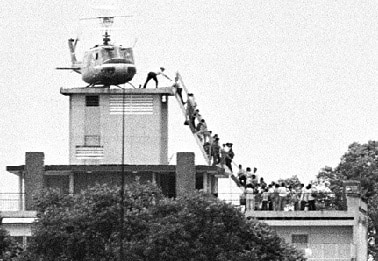
The Case for Increasing Disability Ratings for Vietnam Veterans
The 50th Anniversary of the end of the Vietnam War was April 30th.
Vietnam veterans, who served during one of the most tumultuous periods in American history,
have faced a myriad of challenges both during and after their military service. These challenges
extend beyond the battlefield, manifesting as physical injuries and psychological scars that
continue to affect their daily lives. Given the unique circumstances of their service and the
lingering effects of their experiences, there is a compelling case for increasing the disability
ratings for Vietnam veterans.
One of the primary reasons for advocating an increase in disability ratings is the
acknowledgment of the long-term health issues stemming from exposure to Agent Orange and
other toxic substances. During the Vietnam War, U.S. forces used herbicides, most notably Agent
Orange, to defoliate forests and eliminate enemy cover. This chemical exposure has been linked
to a variety of serious health conditions, including various cancers, heart disease, diabetes, and
neurological disorders. Many Vietnam veterans have struggled for decades to receive adequate
medical care for these conditions, often facing bureaucratic hurdles and a lack of recognition
from the Department of Veterans Affairs (VA). An increased disability rating would not only
provide financial support but also validate the sacrifices and suffering endured by these veterans.
Moreover, mental health issues stemming from combat experience—often referred to as Post-
Traumatic Stress Disorder (PTSD)—are prevalent among Vietnam veterans. This group was among the first to confront the psychological toll of warfare in a significant way, with many returning home to a society that was largely unprepared to understand or support their mental
health needs. The trauma of combat, coupled with societal stigma and lack of resources, has led
to a higher incidence of depression, anxiety, and substance abuse among Vietnam veterans. By
increasing disability ratings, the VA can better address the complexity of mental health issues,
ensuring that veterans receive the necessary care and support.
In addition to health concerns, there is the moral imperative to recognize the sacrifices made by
Vietnam veterans. Many of these individuals faced immense challenges, including inadequate
support systems during and after their service. They returned home to a country divided over the
war, often facing hostility rather than gratitude. Increasing disability ratings would serve as a
recognition of their service and sacrifice, acknowledging that their contributions—often made
under dire circumstances—deserve greater respect and support.
An increase in disability ratings could alleviate some of the financial burdens faced by Vietnam
veterans. Many struggle to make ends meet due to their disabilities, which can limit their ability
to work or engage in daily activities. The additional financial support from an increased
disability rating would help veterans access essential services, such as healthcare, housing, and
rehabilitation programs. This financial assistance could lead to improved quality of life and
increased opportunities for veterans to reintegrate into civilian life.
The call for increased disability ratings aligns with a broader social movement advocating for
veterans’ rights and well-being. By prioritizing the needs of Vietnam veterans, society acknowledges the importance of caring for those who have served. This shift in perspective not only benefits veterans but also sets a precedent for how future generations of service members
are treated.
Increasing the disability ratings for Vietnam veterans is a necessary step towards recognizing
their sacrifices and addressing the long-term health and psychological issues they face. By doing
so, society can affirm its commitment to supporting those who served, ensuring that they receive
the care and respect they rightfully deserve. The time has come to honor Vietnam veterans not
just with words, but with meaningful action that reflects their courage and enduring sacrifices.





